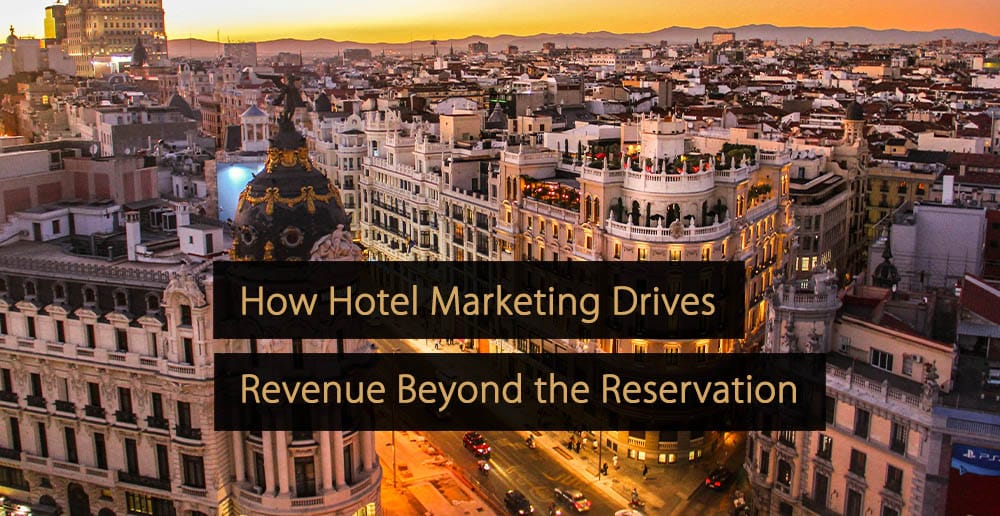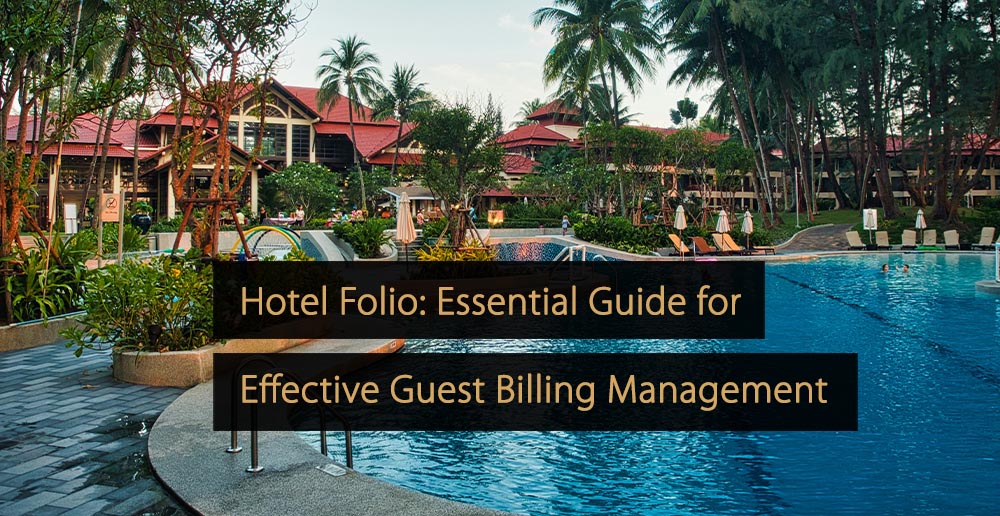While OTAs have dominated the digital travel booking space in recent years, their influence is quietly dwindling as travelers seek more authentic experiences. In parallel, hoteliers now have access to more tools and resources for digital optimization. In fact, hotels of all sizes can significantly boost online bookings by taking a few notes from these eCommerce giants. After all, they’ve invested in research and testing to prove that these best practices work.
6 Lessons from Leading Brands You Should Be Aware of
Here, we will go through six valuable lessons from leading brands that you should take into accoint when considering your hotel booking strategies.
1. Simplified User Experience
“Less is more” is a great rule of thumb when dealing with website optimization. Airbnb has done a fantastic job in creating a simple, intuitive interface that guides their website visitors effortlessly through to the booking process. Their platform incorporates clear visual hierarchies and smooth transitions to minimize cognitive load and maximize user engagement, ultimately boosting conversion rates. Here are some learnings that you can take away to apply to your very own hotel website:
Focus on Website Navigation
- Organise content with clear categories and menus, placing priority on main CTAs.
- Utilise visual hierarchies and consistent design to guide users easily.
A clear and intuitive website layout reduces confusion and frustration, leading to an overall better user experience and allowing users to find the information they need.
Reduce Steps in the Reservation Process
- Condense your booking form into one page; the fewer users have to click, the better.
- Utilise re-fill options to provide information about returning guests to expedite the checkout process.
Lengthy checkout processes can frustrate and deter potential guests, and the fewer steps there are to complete a reservation, decreases the likelihood of cart abandonment.
Use a Mobile-First Approach
- Implement a responsive website that automatically adapts to all screen sizes.
- Ensure fast loading times and intuitive navigation on mobile platforms.
Quick-loading, easy-to-use mobile sites lead to higher engagement and conversion rates, as users are less likely to abandon slow or complicated interfaces.
2. Personalization at Every Step
Personalization is a critical function of every successful booking engine. Booking.com utilizes its machine learning algorithm alongside AI to provide custom search results and recommendations based on user behavior and preferences. This allows them to present only the most relevant content, improving overall customer experience. Here’s what you can also do for a personalized booking engine experience:
Offer Dynamic Pricing
- Adjust room rates based on the season, current occupancy, and pricing of competitors.
- Offer lower rates during off-peak periods and higher rates during high-demand times.
This approach maximizes revenue by aligning prices with market demand. This encourages bookings during slow periods while also being able to capitalise on those peak times.
Launch Targeted Email Campaigns
- Segment guests with email marketing based on demographics, history, and preferences
- Send personalized promotions, loyalty benefits, and tailored content to each segment
This can improve engagement significantly by delivering highly relevant offers to guests and increasing the likelihood of repeat business.
3. Clear Calls-to-Action and Trust Signals
Platforms like TripAdvisor are experts at strategically placing trust badges, reviews, and clear CTAs throughout their platforms. Their ranking system emphasizes the quality, frequency, and freshness of reviews, and acts as a powerful trust signal for potential bookers. Here’s how you can incorporate trust signals into your booking engine:
Showcase Authentic Reviews
- Highlight top-rated reviews and overall ratings on high-traffic areas of your website.
- Include guest-generated content to enhance authenticity for visitors.
By prominently displaying guest reviews on the homepage and booking pages, hotels can project a trustworthy image and encourage potential guests to book.
Optimize Call-to-Action (CTA) Elements
- Strategically place CTAs prominently across all pages, especially on the first half of the page, before scrolling is needed (“above the fold”).
- Utilize contrasting colors for CTA buttons to draw attention to them.
- Write direct and clear copy on CTA’s like “Book Now” or “Reserve Your Stay“.
Effective CTAs can lead to a boost in bookings, as they create urgency and clarity in the booking process and, most importantly, guide users toward making a decision
4. Streamlined Checkout Process
Amazon’s one-click checkout is considered the benchmark for seamless eCommerce transactions, allowing users to complete purchases with the least amount of friction. Booking.com adopted a similar strategy with its “Book in 2 taps” feature as well. Some booking engines, like Hotelchamp’s Booking Engine, offer safe one-click solutions for checkouts with Apple and Google Pay. This not only streamlines the process, but also offers solutions that guests are familiar with.
These streamlined approaches enhance the user experience by reducing the number of steps required to finalise a purchase and increasing conversion rates. Here is how you can also streamline your checkout process:
Simplify Data Collection
- Request only the necessary information from guests to book.
- Utilise ‘smart forms’ that auto-fill information for guests based on information they previously shared.
Less input fields help visitors make decisions easier, leading to higher conversion rates. Auto-fill options can speed up the process, catering to users who prefer quick transactions.
Enhance User Experience
- Display obvious progress indicators for visitors during the booking process.
Progress indicators offer visual guidance, reducing user anxiety and improving completion rates.
Optimize Payment Processes
- Implement one-click payments for returning customers.
- Display a clear price breakdown before the final confirmation.
One-click payments reduce decision time for potential guests and encourage repeat visits. On top of that, transparent pricing builds trust for website visitors and can be a big factor in cart abandonment.
5. Re-Engagement with Return Loops
Return loops are an extremely powerful strategy used across industries in eCommerce to re-engage customers and drive conversions. Expedia leverages personalized follow-up emails to target users who have shown interest but haven’t completed a purchase. These re-engagement campaigns include tailored recommendations, special offers, and reminders of abandoned carts or searches. This strategy recovers lost sales and reinforces brand loyalty while keeping the company top-of-mind for future bookings.
Targeted Email Reminders
- Send automated emails to guests who abandoned their booking process, reminding them of their unfinished reservation and offering incentives to complete it.
- Offer special packages or limited-time discounts that are not available on the website.
This tactic capitalizes on the guest’s initial interest, reduces cart abandonment rates, and increases direct bookings.
Personalized Offers
- Tailor promotional offers based on a guest’s previous stay and preferences, like room type, amenities used, or on-property spending habits.
Personalized offers resonate more, increasing the likelihood of booking and upselling opportunities, ultimately boosting revenue.
6. Price Transparency and Guarantees
OTAs like Kayak and Agoda have revolutionized hotel booking by prioritizing price transparency and comparison features on their platforms. These sites aggregate rates from numerous channels, allowing travelers to easily find the best deals across multiple providers. To enhance user confidence, many OTAs offer price guarantees or price-matching policies. Additionally, these OTAs often include features to display taxes and fees upfront, giving users a more accurate picture of the total cost.
Implement Direct Booking Incentives
- Offer potential guests a “best price guarantee” to book directly on your website vs. an OTA.
- Provide exclusive perks or discounts for direct bookings.
- Create a loyalty program with points or rewards for direct bookings.
Best price guarantees build trust, while exclusive perks and loyalty programs encourage repeat business and foster brand loyalty.
Ensure Pricing Transparency
- Display nightly and total stay rates with all taxes and fees included.
- Use a price breakdown tool on the booking page with an explanation of each type of charge.
Transparent pricing aligns with consumer preferences and upcoming legislation like the Hotel Fees Transparency Act, positioning your hotel as honest and customer-centric.
Leverage Competitive Pricing Display
- Show OTA rates alongside your direct booking price.
- Highlight the value-added services included in your rate.
- Implement a price-matching policy for direct bookings.
Displaying competitor prices directly demonstrates the value of booking and instills confidence in visitors. It also provides context for your pricing and can justify higher rates if you offer better amenities/services.
Transform Your Hotel’s Online Booking Experience
By implementing these strategies, hotels can elevate online booking experiences into something exceptional. Unlike OTA’s, hotels have a unique opportunity to forge meaningful connections with guests through personalized marketing and re-engagement, making them feel valued and connected. Optimizing the online booking process with these options, like one-click payments, tells potential guests that you respect their time and serves as a preview of what they can expect when staying at your hotel.
More Tips to Grow Your Business
Revfine.com is the leading knowledge platform for the hospitality and travel industry. Professionals use our insights, strategies, and actionable tips to get inspired, optimize revenue, innovate processes, and improve customer experience.Explore expert advice on management, marketing, revenue management, operations, software, and technology in our dedicated Hotel, Hospitality, and Travel & Tourism categories.








Leave A Comment